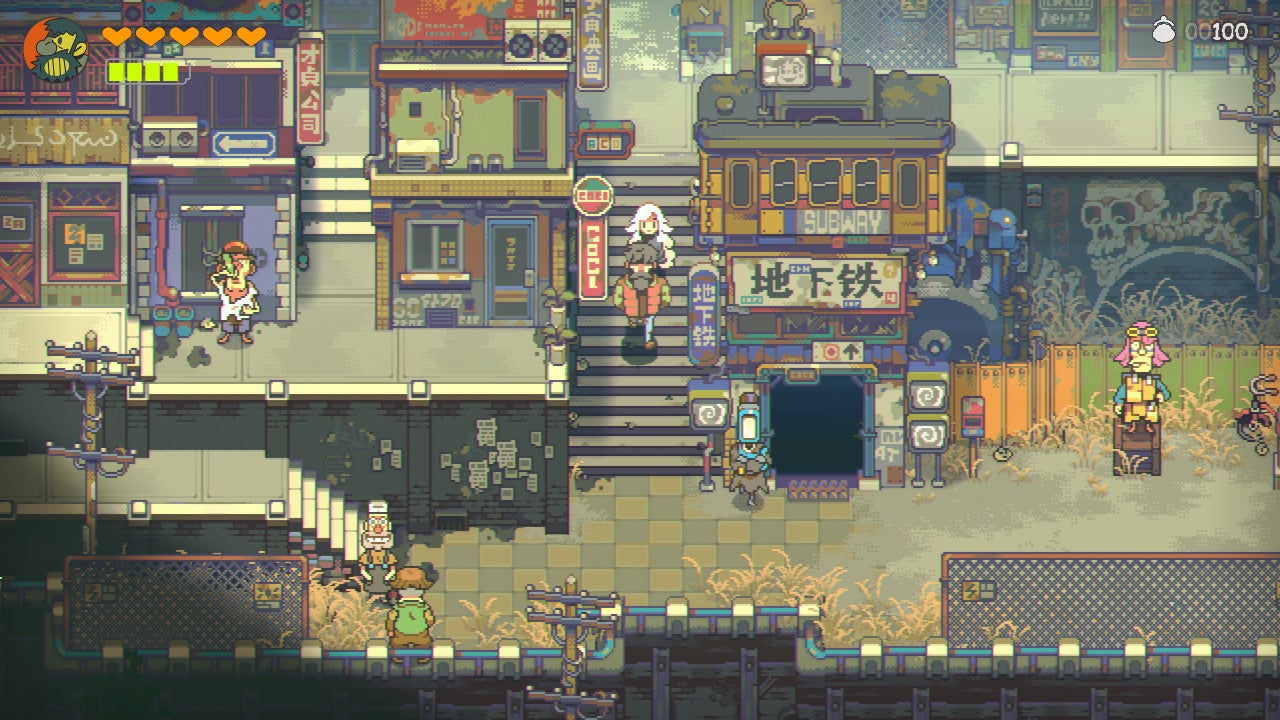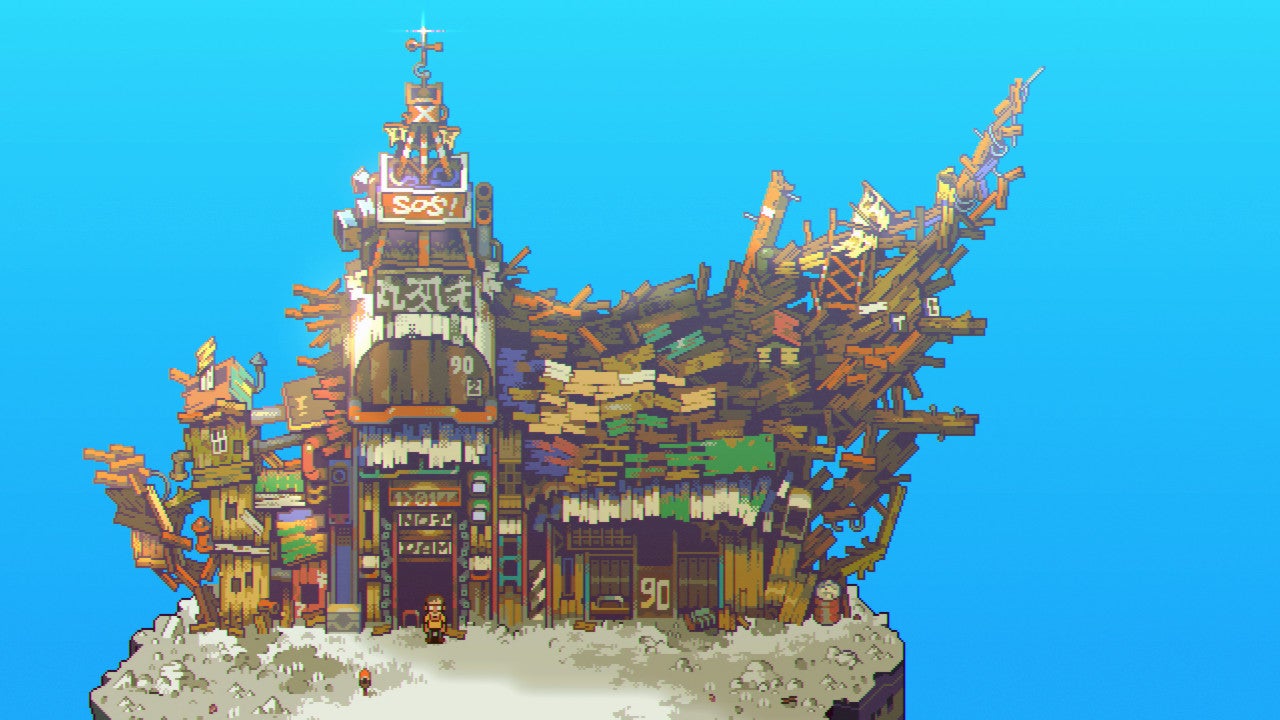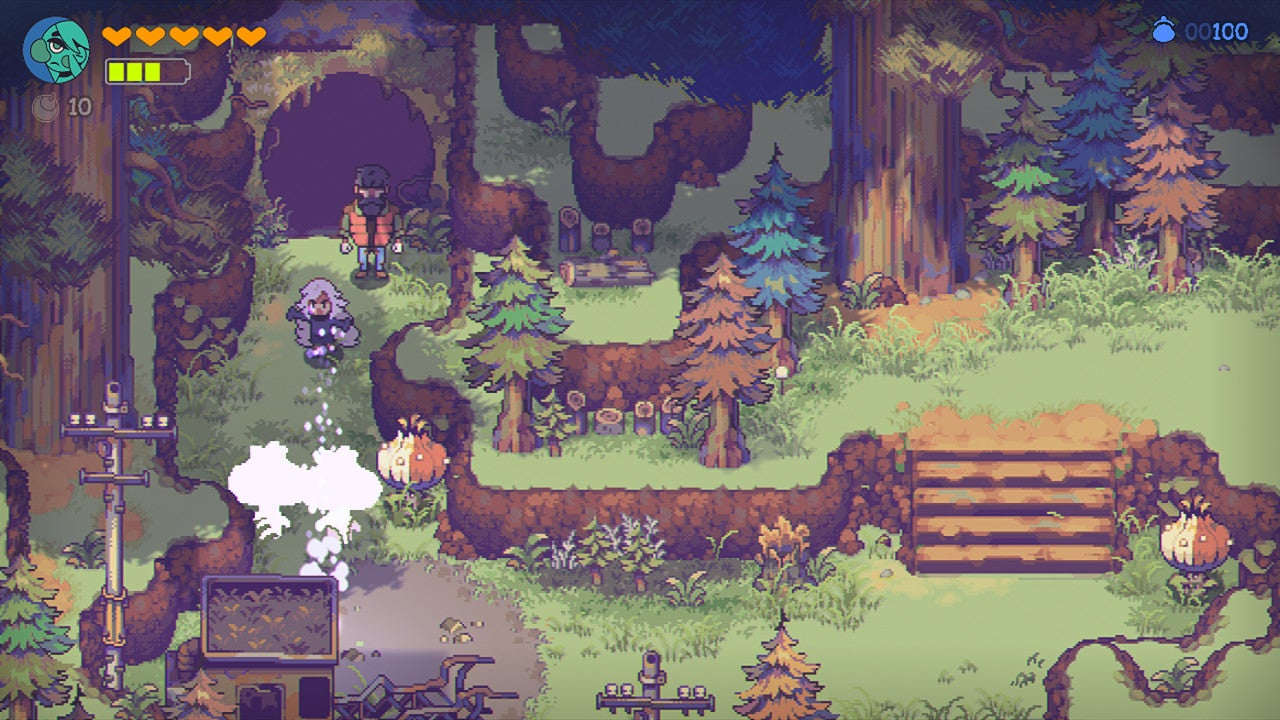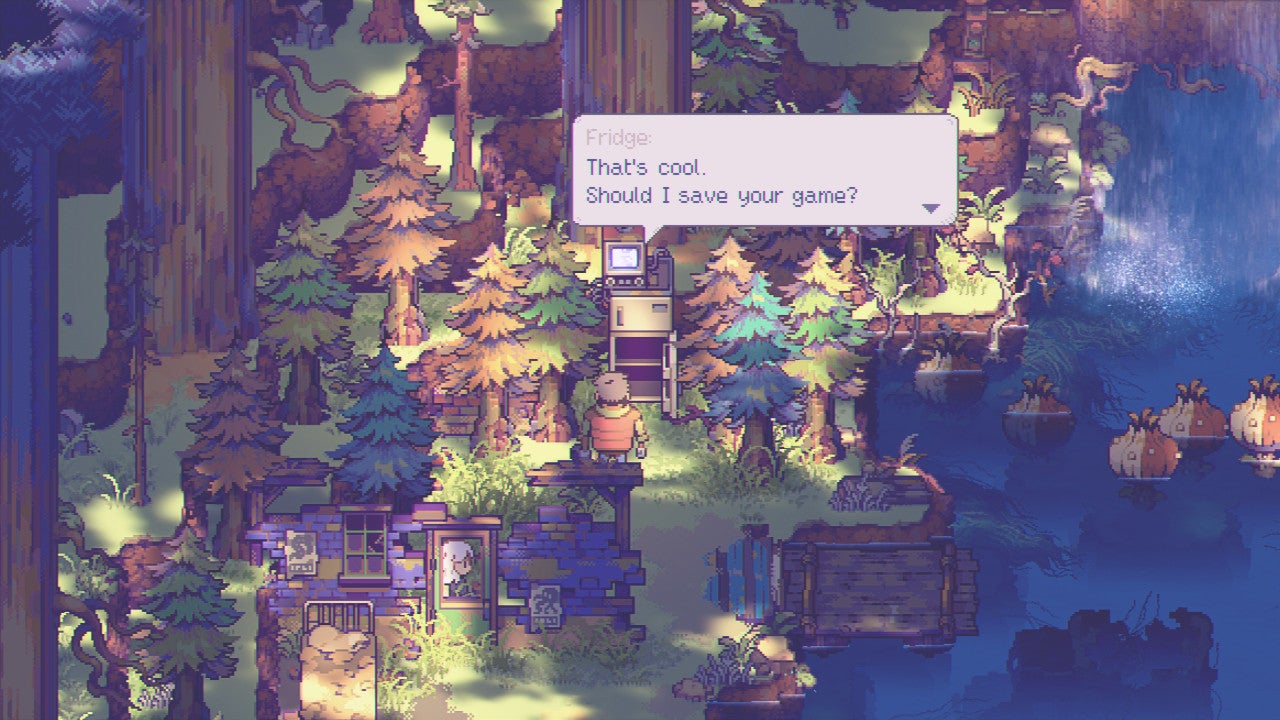Before that, though, there’s a lot more Zelda going on in the way Eastward plays out too. The action is stripped back and there’s a neat crunch to the combat, while the puzzles involve plenty of pushing of crates and bombing of rickety old walls. There’s a certain twist provided by the dual character mechanic - miner John has a trusty frying pan to hand, and brings explosives into the mix, while young Sam has access to an energy blast that can light the way forward while also stunning enemies, with both switching in and out of the lead role at the touch of a button. You can also split the team apart to solve certain puzzles, and then bind them back together. And from that foundation Pixpil is able to extrapolate a lot. In the short section I played there’s a cooking mechanic that lovingly lifts from Breath of the Wild, a jeep racing mini-game and between all that some finely tuned dungeon crawling. I don’t particularly want to go into too many specifics, because there’s not that long to wait until the full and final thing - Eastward has been confirmed for release in just over a month on Switch and PC - but just take a small moment to appreciate the artwork that’s perhaps the game’s strongest suit. There are modern techniques at play that give Eastward a certain dynamism - 3D lighting helps sell an atmosphere that’s post-apocalypse by way of Studio Ghibli, a charming blend of the magical and melancholic - but underneath it’s pure Game B oy Advance. Nintendo’s 32-bit handheld always sat a little oddly with me (partly because I had to sit a little oddly in order to get a decent view of that appalling screen on the first gen hardware), mostly because there were too few proper bespoke games for it - but looking back that seems a bit silly, because the ones that were served up were absolute bangers, all with an aesthetic that’s entirely the Game Boy Advance’s own. Maybe it’s something to do with the machine being Nintendo’s last predominantly 2D console - and arguably the last mainstream hardware more concerned with pixels than polygons - but there’s a fulsomeness to the likes of Advance Wars and Minish Cap quite unlike anything else. That latter game provides some obvious inspiration here, and Eastward’s worlds are similarly busy and tangible, but of course it’s another GBA classic whose shadow looms large here. While the wait for the release of Mother 3 in the west seems fairly indefinite, it’s a pleasure to get a game so clearly in thrall to Shigesato Itoi’s particular brand of magic. Eastward won’t be the first game to pay tribute to his beloved run of RPGs, but it does bring with it some of its own sensibilities - there’s a grit, charm and warmth in Pixpil’s subterranean world that earn it a place alongside the likes of Undertale. Will Eastward be able to reach some of those same heights? I’m looking forward to digging into more ahead of its final release in September, but right now the signs are looking very promising indeed.



